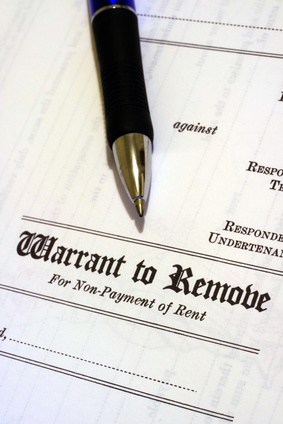
Before you bring an eviction action to remove an occupant of real property for holding over in the Town of Babylon, there are certain things you must know. First, you must be properly situated to bring the action. That means, generally, that you must be the owner of the property, and the person you are seeking to evict must be in possession of the property. There must also be no written lease agreement in effect for a term that has not yet expired.
Next, you need to know what type of occupancy you are dealing with. Is it (1) a tenancy at will or by sufferance; is it (2) a month-to-month tenancy because a written lease agreement for a term has expired and the tenant remained in possession with or without your permission; is it (3) an occupancy incident to employment; is it (4) a licensee who was never a tenant and has no exclusive possession of any part of the property; is it (5) an intruder and squatter; or (6) did you purchase the property subsequent to a foreclosure and the person you want to remove is the former owner or his tenant?
If option (1) applies, you will need to prepare a thirty-day notice of termination and arrange to have it served on the tenant at least one month before the end of a monthly term. If option (2) applies, you will need to prepare a thirty-day notice informing the tenant that his tenancy is not being renewed and that he must vacate in 30 days, if the tenant has occupied the property for less than a year and does not have a lease for at a term of at least 1 year. If option (2) applies and the tenant has been there for one year or more (but less than 2 years) or had a lease for at least one year that expired, then the tenant must be served a sixty-day notice. If option (2) applies and the tenant has been there for more than 2 years or had a lease for at least two years that expired, then the tenant must be served a ninety-day notice. These steps are unnecessary if options (3), (4), (5) or (6) apply, because in those cases, the occupant is only entitled to a ten-day notice to quit. After the tenant’s term expires pursuant to the notice, and no rent has been accepted, you must prepare a notice of petition and hold-over petition. You must choose a date for your petition to be heard in court and that date must fall on a Tuesday and must be at least 17 days in the future.
The original notice of petition and non-payment petition, and one complete copy of those papers, must then be brought to the Second District Court of Suffolk County, located at 30 East Hoffman Avenue, in Lindenhurst, and must be filed with the Clerk of the Court. The fee for this is $45.00, and it is called an “index fee.” The Clerk will return your copy of the papers to you, time stamped, with a receipt for your payment of the index fee.
You must then arrange to have someone over the age of 18 years who lives in the State of New York, who is not a party to the action, serve the papers on the tenant at the house. The papers must be served no more than 17 days before the date the petition is to be heard, but no less than 10 days before that date. Then an affidavit of service must be prepared by the person who served the papers and must be filed with the Clerk of the Court within the time required by law.
Finally, you must appear in the Second District Court on the date the action is to be heard, before Honorable Garrett W. Swenson, Jr., District Court Judge. If the tenant does not appear, you can request a default judgment for all the relief you are seeking in your petition, provided it was served properly and there are no defects in it.
If both parties are present, then Judge Swenson will require you to step out of the courtroom and discuss the matter among yourselves to see if it can be settled. If it can, and you come to a settlement agreement with the tenant, then you must put it in writing using the stipulation of settlement forms available in the courtroom for that purpose.
If the matter cannot be settled, Judge Swenson will hold a hearing (a trial) on the matter, sometimes the same day, if both parties are ready. If either party requests an adjournment, it will likely be granted, but unless both parties consent to the adjournment, it will be for two weeks and may be marked “final” against the party requesting the adjournment.
At the hearing, you must state your case to the Court. As the petitioner, you will get to go first. If you do not state all of the facts necessary to your case, your petition will be dismissed, and you will have to start again. Next it will be the tenant’s turn to present his or her defenses. If the tenant has legal defenses, your case may be dismissed. But if you state your case adequately, and the tenant has no legal defenses, then you can expect to win a judgment of possession; and a warrant of eviction for the Sheriff to remove the tenant.
This is a very barebones outline of the hold-over process in the Town of Babylon, and is not intended as anything other than a brief overview. Because of the complexities of landlord-tenant law and proceedings, you should always be represented by an attorney specializing in landlord-tenant law. The Murtha Law Firm, LLC, is ready to represent you. When you retain us, we take care of everything described above and more. All you need to do is appear with us in Court. Call us today for a free consultation to get started.






